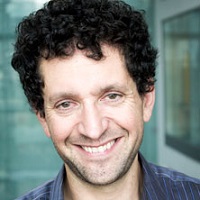Our International Politics PhD/MPhil research programme enables you to undertake substantial research addressing complex contemporary issues including political economy, social change and global policy.
Research centres and groups
Key information
| Starting date | Deadline for application |
|---|---|
Duration
Politics Postgraduate research degrees PhD/MPhil course Overview
The International Politics research programme at City has an open outlook with a strong interdisciplinary focus and a wide external network.
Our expert supervision across a range of topics including international relations, diplomacy, comparative politics, contemporary history, and international political economy. These topics will help you to design and produce your research programme.
You will be embedded within a stimulating and modern research community through participation in our Department’s research centres. These are the Centre for International Policy Studies, the City Political Economy Research Centre and the Centre for Modern History.
After producing a substantial body of unique political research, you will have further career opportunities both within academia and beyond.
Structure
Students on graduate research programmes are initially registered for an MPhil award. Promotion to registration to PhD is not automatic, but contingent on the satisfactory outcome of a review process. This is towards the end of the first year of registration for full-time candidates and towards the end of the second year for part-time candidates.
You will submit a substantial formally constructed upgrade or transfer document for assessment and present at the annual research colloquium.
Subject to demonstrating, both in writing and presentation, the intellectual and methodological ability and motivation to complete a PhD and providing a viable timetabled plan for timely completion of the research, you will be upgraded to PhD.
Your progress is periodically assessed during years two and three of research. This also ensures that you are receiving appropriate levels of supervision, training, and practical support.
The programme will conclude with submission of your research in the form of a PhD thesis and attendance at a viva voce examination. This will be in front of at least two examiners, at least one of whom will be external to City.
For full details about the City PhD programme structure, please see the Guide for Research Students.
Requirements
Entry requirements
Applicants should have a track record of high academic achievement, demonstrated by a good undergraduate degree with at least a second class (upper division) pass or equivalent, plus a good Masters-level degree with at least a pass with merit (or equivalent).
English requirements
For students whose first language is not English, the following qualifications will meet the English language requirements for entry to a postgraduate course of study:
- A first degree from a UK university or from the CNAA.
- A first degree from an overseas institution recognised by City as providing adequate evidence of proficiency in the English language, for example, from institutions in Australia, Canada or the USA.
- GCE O-level/GCSE English language or English literature, grade C minimum.
- An overall score of 7.0 in the English Language Testing System (IELTS) with a minimum of 6.5 for each subtest.
- Other evidence of proficiency in the English language which satisfies the Board of Studies concerned.
For more information see our main entry requirements page.
Visa requirements
If you are not from the European Economic Area / Switzerland and you are coming to study in the UK, you may need to apply for a visa or entry clearance to come to the UK to study.
The way that you apply may vary depending on the length of your course. There are different rules for:
- Students on courses of more than six months
- Students on courses of less than six months
- Students on a pre-sessional English language course.
For more information see our main Visa page.
Fees and funding
Full-time Home/UK:£5,110 per year
Part-time Home/UK:£2,560 per year
Full-time International:£13,630 per year
Part-time International:£6,810 per year
Fees for doctoral candidates are charged annually and cover registration, supervision and examination.
Fees are subject to review each year and may vary during your period of registration. Where applicable, fees for City's programmes will be subject to inflationary increases in each academic year of study commencing in September. Our policy for these increases is set out in our terms and conditions of study.
You pay the above fees (which usually increase each year in line with inflation) annually until you are ready to go into 'writing up' status. You are then no longer researching your research topic and requiring supervision, and are solely preparing your thesis for examination.
You will not be required to pay further tuition fees but you will be charged the writing-up fee of £300 which will cover you for the duration of the writing-up period (a maximum of 12 months for full-time and 18 months for part-time students).
If a student fails to submit their thesis within the maximum writing-up period, they will be reverted to full registration (full-time or part-time depending on their status before moving to writing up) and will be required to pay the full fees.
Students will only be expected to pay for the time taken to complete the thesis and once the thesis has been submitted the remaining proportional fees will be refunded to the student.
Support for PhD study
Prospective students are encouraged to explore doctoral Grants and funding opportunities such as:
- Commonwealth Scholarships
- Research Council studentship awards, if available.
Our bursaries are non-repayable sums of money granted by the University, usually based on need.
Our loans are repayable sums of money granted by the University or other body.
Our scholarships are when the University pays towards your Study fees. You may also be eligible for further funding.
Postgraduate Doctoral Loans
The Government has introduced a new Postgraduate Doctoral Loans scheme which can provide a loan of up to £25,000.
This will be over three years to support study for a doctoral degree.
A Postgraduate Doctoral Loan can help with course fees and living costs while you study. It can be used alongside any other forms of support you may be able to receive.
For more information, please see our Postgraduate Doctoral Loans page.
Additional expenses
Some of our degrees may involve additional expenses which are not covered by your tuition fees. Find out more about additional expenses.
Academic support
City has a well-established structure and processes to support your research.
Supervision
Research students are appointed a supervisory team consisting of at least two supervisors. One of these will be designated as the first point of contact with personal responsibility for ensuring that effective supervision is provided.
Training
During the PhD Programme you will be provided with a range of academic and training support opportunities. This will help to facilitate your research in the subject of Politics.
Specialist theoretical, empirical and research training is provided both by the Department of International Politics and across the School of Policy & Global Affairs and the institution.
Throughout the research process you will also discuss individual training needs with your supervisors in order to identify subject or topic specific training.
Research Environment
Our students constitute an important part of a stimulating research environment. Doctoral students are housed in shared rooms of the Social Sciences Building. They will have direct access to staff members, research events in the School and beyond.
The Department has a research seminar series where scholars from other universities and members of their department present their research to our students.
Students play an active role in the department's research centres (the Centre for International Policy Studies (CIPS) and the City Political Economy Research Centre (CITYPERC), attending and assisting with their events organised by these centres.
How to apply
Preliminary enquiries
When considering potential applicants, we attach great importance both to the applicant's academic profile and record of achievement. Also the fit between the proposed research and the interests of the supervisor is important.
It is therefore essential that potential applicants identify staff with relevant research expertise. Then they can contact members of staff individually to discuss their willingness to offer supervision for their particular topic before submitting a formal application to undertake a research degree.
Please consult staff profile pages for our specialist research profiles and interests. Before looking for a potential supervisor, please carefully check the minimum entry requirements, both regarding English language proficiency and marks in relevant previous qualifications.
Please note that we will not consider applications unless the applicant has initially discussed their proposal with a member of staff.
Details of relevant academic staff can be found here.
Research proposal
Please limit your proposal to no more than five sides of A4. It should address/demonstrate the following points:
- Working title
- Description and justification of the research topic you have chosen to address
- Review of existing research literature
- Research questions
- Research methodology for your proposed study
- Research timeline or workplan
- How your proposed research links up to the research interests of the Department and potential supervisors
- References or short bibliography.
See here for guidance on writing your research proposal.
Applications
We accept applications on an ongoing basis for entry in late September.
To apply online, you will need to submit the following supporting documents:
- Your research proposal
- Cover letter (max one side of A4), explaining the preferences regarding potential supervisors and the motivations for applying to the PhD programme in the International Politics Department at City
- Two academic references (or one academic and one professional referee where appropriate) sent by email from an official work (not private) email account
- Copies of your degree transcripts and certificates (originals or certified copies)
- Proof of your English language proficiency (if English is not your first language).
For further application enquiries please contact our PGR enquiries team.
Find a supervisor
See our full list of academic staff and potential supervisors in International Politics.
Featured profiles

Professor Inderjeet Parmar
Professor of International Politics
Department of International Politics

Professor Amnon Aran
Professor of International Politics of the Middle East
Department of International Politics

Professor Ronen Palan
Professor of International Politics
Department of International Politics
Our students
See more of our Research Students in the Department of International Politics.

